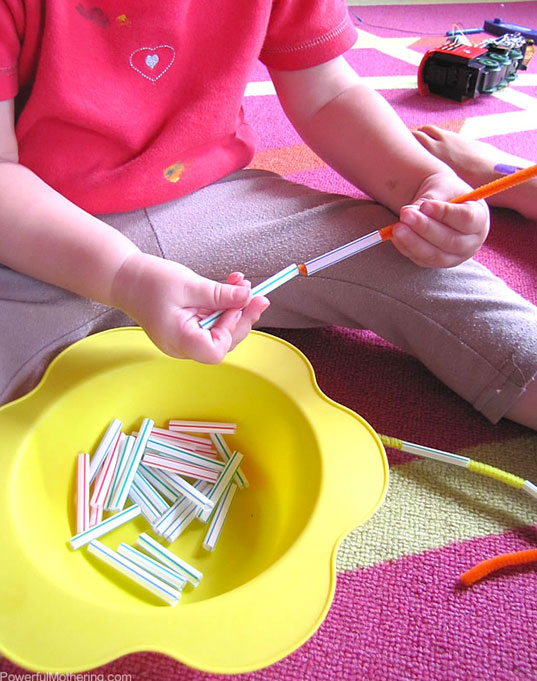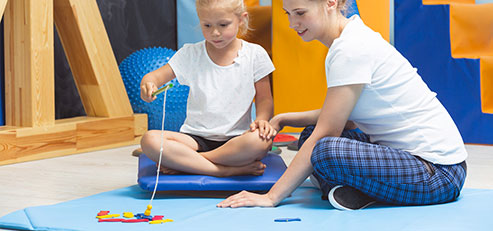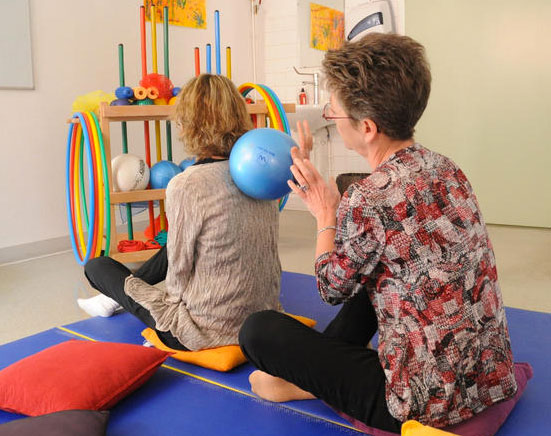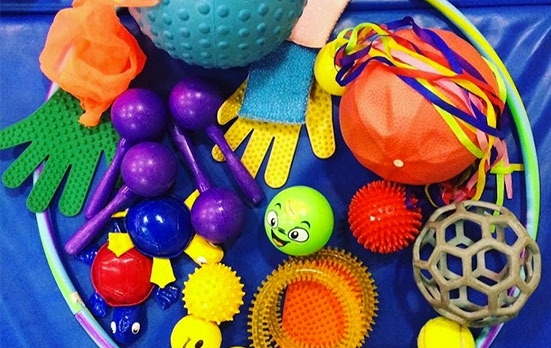psychomotor therapy
psychomotor therapy
PSYCHOMOTOR therapy
in dubai
Psychomotor therapy (PMT) is a healthcare profession addressed to individuals from birth to elderly who present with motor, behavioral, cognitive or emotional difficulties. It is based on a holistic view of the person and targets the treatment of the different disorders (developmental, genetic, neurological, mental and psychomotor) in an extensive and global approach.
As a therapy, it improves the balance between the body and mind and aims to optimize the global development of the person to reach a better mental health & physical wellbeing, social integration and academic performance using different mediations and techniques.
Our Clinician

AREAS AND FIELDS OF INTERVENTION
The areas of intervention of Psychomotor Therapy are very wide and include: PMT stimulation & awakening, PMT education, screening & prevention, assessments & diagnosis, early intervention, therapeutic intervention, and re-education. The PM therapist intervenes in:
- Mental health clinics
- Specialized institution
- Hospitals (pediatrics, geriatrics, psychiatry)
- Rehabilitation centers
- Inclusive & specialized schools
- Regular schools
- Nurseries
- Medical-social associations
- Non-governmental organizations
PSYCHOMOTOR DOMAINS
- Body schema: body perception, body organization & orientation, and body image representation.
- Tonicity: muscle tone control (control and release the muscle tone when needed) & tonic-emotional regulation.
- Laterality: knowledge of left/right concepts, mastering of the dominant hand/foot/eye.
- Time: knowledge of time concepts (knowledge days of the week, months, seasons), time orientation (yesterday, day, tomorrow, day/night, beginning/end), time organization (chronological sequencing of events & stories), time management, and rhythm.
- Space: knowledge of spatial notions (up/down, on/under, between, next, etc.) and orientation in accordingly, visual-constructive & visual-perceptive analysis.
- Gross motor skills: dynamic coordination, static coordination, and balance.
- Fine motor skills: dexterity, bimanual coordination, eye-hand coordination, association/dissociation of hands, praxis, fine grip, digital individuation.
- Handwriting skills: pencil grip, perceptive decoding, body posture, pencil pressure, precision, quality and speed of writing, and symbolism. Executive and cognitive functions: attention and memory, problem solving, planning skills & mental flexibility.
- Interactive modalities: verbal and nonverbal communication (interaction with others, pointing, joint attention, imitation), object permanence, expressing emotions, understanding facial expressions and mimics.
- Sensory modulation: auditory, tactile, visual, proprioceptive, vestibular, olfactory, taste.
WHO BENEFITS FROM A PMT INTERVENTION
The PMT in Camali Clinics provides care for toddlers, school aged children and teenagers. A child will benefit from PMT if they present any of the following disorders:
- Global Developmental Delay
- Autism Spectrum Disorder
- Attention Deficit and Hyperactivity Disorder
- Intellectual Developmental Disorders
- Learning Disorders: Dyslexia, Dysphasia
- Sensory Impairments: visual and auditory
- Stuttering
- Tourette Syndrome
- Genetic Disorders
- Motor Disorders
- Oppositional Defiant Disorders
- Behavioral and Emotional Disturbance
- Anxiety Disorders and Low Self-esteem
- Sensory Processing Disorders
- Psychomotor Disorders that may not be caused by neurological and intellectual disorders.

PSYCHOMOTOR DISORDERS & DIFFICULTIES

- Psychomotor development delay
- Psychomotor inhibition or agitation
- Developmental Coordination Disorders
- Movement disorders such as the tics
- Movement disorders such as the tics
- Dysgraphia
- Dyspraxia
- Learning difficulties at school.
- Lateralization difficulties and confusions (hand preference unidentified, a naturally left-handed who uses the right
- Hand, changing hands when writing, lack of knowledge of left/right concepts).
- Difficulties with tonicity regulation: muscles control & relaxation, hypertonicity, hypotonicity.
- Difficulties in the executive functions: attention & memory, mental flexibility, problem solving, planning skills, etc.
- Problems with the motor coordination, balance, clumsiness.
- Lack of body schema integration: bumps into or trips over things, body organization & orientation in space, and body image representation.
- Difficulties with manual abilities (hands coordination, eye-hand coordination, dexterity, fine motor skills and digital individuation).
- Visual perceptive & constructive analysis difficulties such as reproducing geometrical shapes, copying, double-entry tables, difficulties in properly carrying out a calculation operation considering the spatial location of the numbers, etc.
- Short attention span and concentration.
- Handwriting difficulties such as a handwriting cramps and fatigue, poor/unclear/slow handwriting, inadequate pencil grip/pressure, inappropriate body posture and arm mobilization and movements, spatial organization on the paper.
- Difficulty with autonomy in daily life activities including such as buttoning a shirt, tying shoes.
- Behavioral difficulties such as opposition, aggressiveness, respecting rituals and rules.
- Difficulties with verbal and non-verbal communication, social and playing skills
- Difficulties with emotions and body expressivity.
- Difficulties in the space structuring: lack of knowledge of the spatial notions, misorientation, poor spatial memory and spatial organization, difficulties doing puzzles, etc.
- Difficulties in the time perception: orientation & organization accordingly to the time notions, does not realize what is going fast or lasting for a long time, difficulties managing the time in relation to the different activities to be carried out, rhythm, etc.).
- Difficulties in sensory modulation.
- Unusual play habits or messy play.
- Fear of failing and low self-esteem.
- Unusual fear of movement/heights or excessive need for rough play and/or lack of safety awareness.

All these difficulties would affect the person’s life in his daily tasks, his learning acquisitions & academic performance, as well as his social adaptation and integration within the community; thus, the need for a PMT intervention.

PMT INTERVENTION PROCESS
Every psychomotor intervention begins with an initial meeting with the caregiver to carry out a thorough anamnesis and ask for medical exams if needed (EEG, MRI, Audiogram) followed by a precise and rigorous evaluation process which is based on a fine clinical qualitative observation as well as on various standardized quantitative psychomotor tests chosen according to the reason for the consultation, the age and the psychomotor function being assessed. Thus, each test will have its specificity. Following the assessment sessions, a detailed psychomotor report describing the observations made and stating the results of the standardized PMT tests is elaborated including a psychomotor diagnosis which will help in setting the intervention plan.
PMT INTERVENTION PLAN
The intervention plan includes designing a therapeutic project with specific short and medium-term objectives as well as providing the needed recommendations to be preferably applied at home and in school settings to reach better global results and goals generalization. It also allows suggesting additional referrals to other specialists since Psychomotor Therapists always collaborate with and work in multidisciplinary teams (doctors, speech therapists, psychologists, special educators, occupational therapists, ABA therapists), where each professional has his/her field of expertise. The PMT plan includes regular follow-ups with nurseries and schools (for toddlers, school aged and teenagers) as well as communicating and collaborating with the other healthcare professionals working with the person in care.
It also allows suggesting additional referrals to other specialists since Psychomotor Therapists always collaborate with and work in multidisciplinary teams (doctors, speech therapists, psychologists, special educators, occupational therapists, ABA therapists), where each professional has his/her field of expertise.
The PMT plan includes regular follow-ups with nurseries and schools (for toddlers, school aged and teenagers) as well as communicating and collaborating with the other healthcare professionals working with the person in care.

It also offers constant support and guidance for caregivers, recommending activities targeting the PMT goals which will improve the parents’ engagement in the intervention plan, assist them in a way to feel supported and to learn how to enhance their child’ skills and confidence and improve the relationship between them and their child.

PMT MEDIATIONS & APPROACHES
Each intervention plan is Individualized; hence it is not possible to describe a general protocol that applies to everyone. During the sessions, Psychomotor Therapists implement & use:
- Purposeful, creative, and motivating activities (directive and spontaneous) to enhance the skills and work on the challenges underlined in the assessment based on each person’s interests.
- Various Techniques and Mediations of care that are adapted to the needs of the patient.
Below are some of the mediations used in PMT to develop the different PMT domains
- Relaxation, Breathing techniques & Massages: body perception & consciousness, tonic-emotional regulation, muscles releasing, body control, etc.
- Artistic & Manual mediation (painting, drawing, etc.): hands coordination, fine motor skills, creativity.
- Graphomotricity: picture & script-graphic techniques, Jeannot method, etc.
- Symbolic & spontaneous play: creativity, mental images, imagination,
- Sensory: sensory exploration & stimulation, sensory integration, sensory-motor experiences, etc.
- Motor: global motricity, coordination, dissociation of upper/lower body parts, balance, muscle tone, etc.
- Cognitive & Perceptive mediation: auto-instruction program, problem resolution, logic, reasoning, memory, attention.
- Body Expressivity: body movement, mime, drama techniques, rhythm, emotions expression, etc.
PSYCHOMOTOR THERAPY GOAL
In conclusion, through its holistic and integrative approach, PMT will improve the mental & physical health of the child, develop the learning pre-requisites, allow the child to have a better school performance and participation, boost their self-esteem and independence and consequently have a better relation and interaction with others & the environment as well as a better social adaptation & integration within the community.

